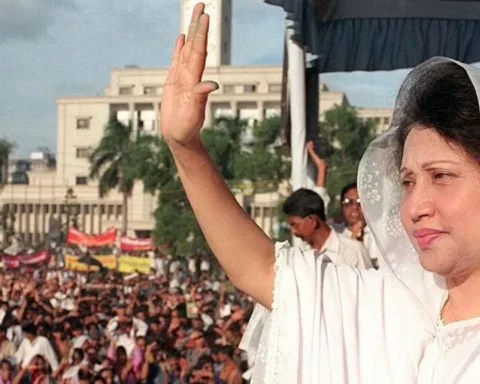US President Joe Biden and Israel’s Prime Minister Benjamin Netanyahu have held a much-anticipated 30-minute phone call – believed to be their first contact since August – which included discussions on Israel’s intended retaliation to Iran’s missile strike last week.
The White House described the dialogue as “direct” and “productive”, and said Biden and Netanyahu had agreed to stay in “close contact” in coming days. Vice President Kamala Harris also joined the call.
Speaking shortly afterwards, Israel’s Defence Minister Yoav Gallant said its attack against Iran would be “deadly, precise and above all surprising”.
Two forces are at work. One is Joe Biden’s reluctance to see the US dragged into a war with Iran that it believes would be unnecessary and dangerous.
The other is a strong sense among some in Israel that they have an opportunity to deal a body blow to Iran – their mortal enemy.
Israel’s offensive against Hezbollah has energised Israelis who were desperate to break out of the grinding war of attrition on their border with Lebanon.
Lebanon, for them, felt like success and progress, a stark contrast to the position in Gaza.
Despite Israel’s onslaught on Gaza that has killed at least 42,000 people, most of them civilians, Prime Minister Benjamin Netanyahu has not been able to deliver his two war aims – the destruction of Hamas and the recovery of the hostages.
Hamas is still fighting, and still holds around 100 hostages, many of whom might be dead.
The damage done to Israel’s enemies, Hezbollah in Lebanon and Hamas in Gaza, has produced in some Israelis an urgent conviction to go further and mount a direct assault on Iran.
For them, a devastating air attack on Iran is a seductive prospect.
Top of the target list for many Israelis are the heavily fortified sites, some driven deep into mountains where Iran houses nuclear facilities that Israel and others fear could be used to make a bomb.





